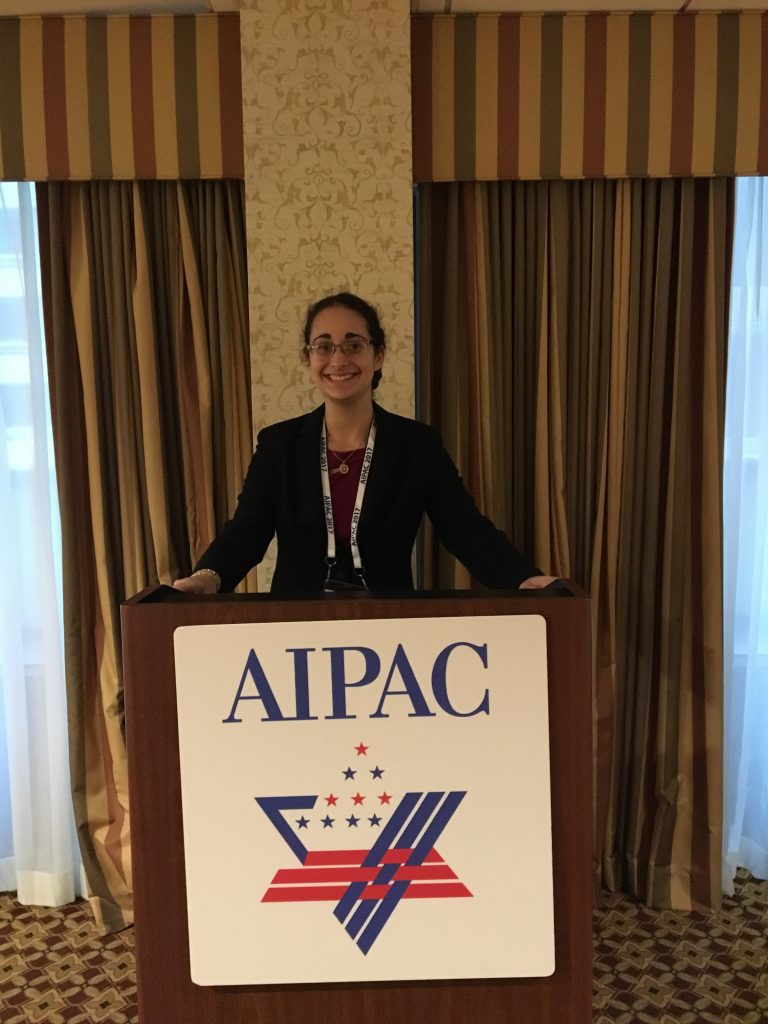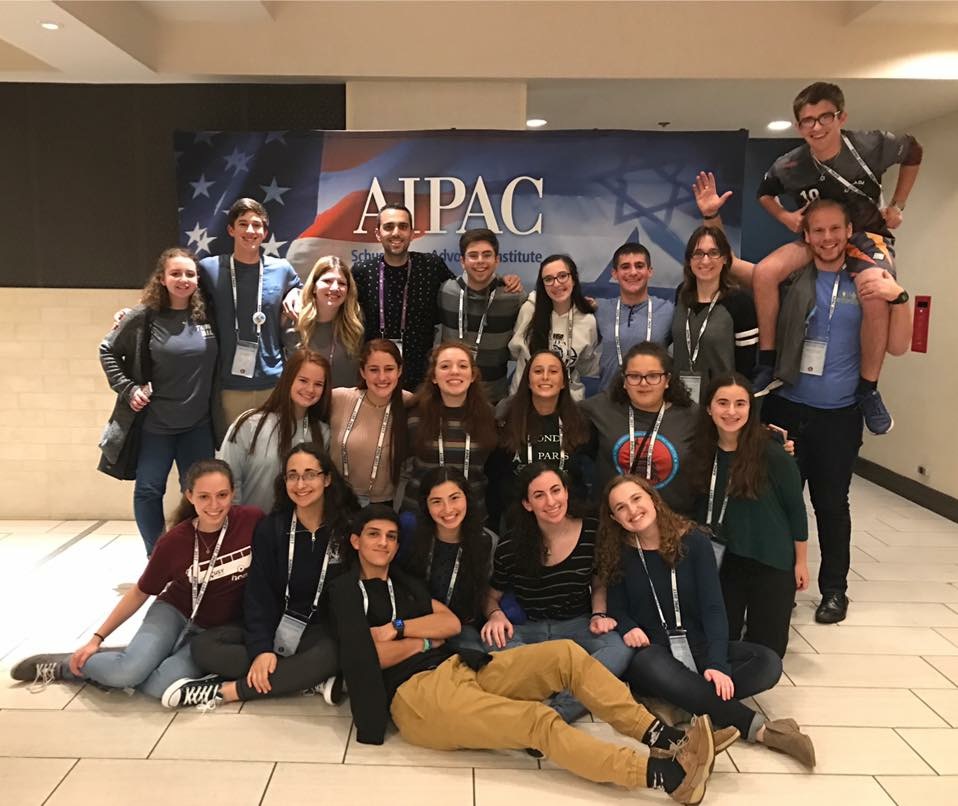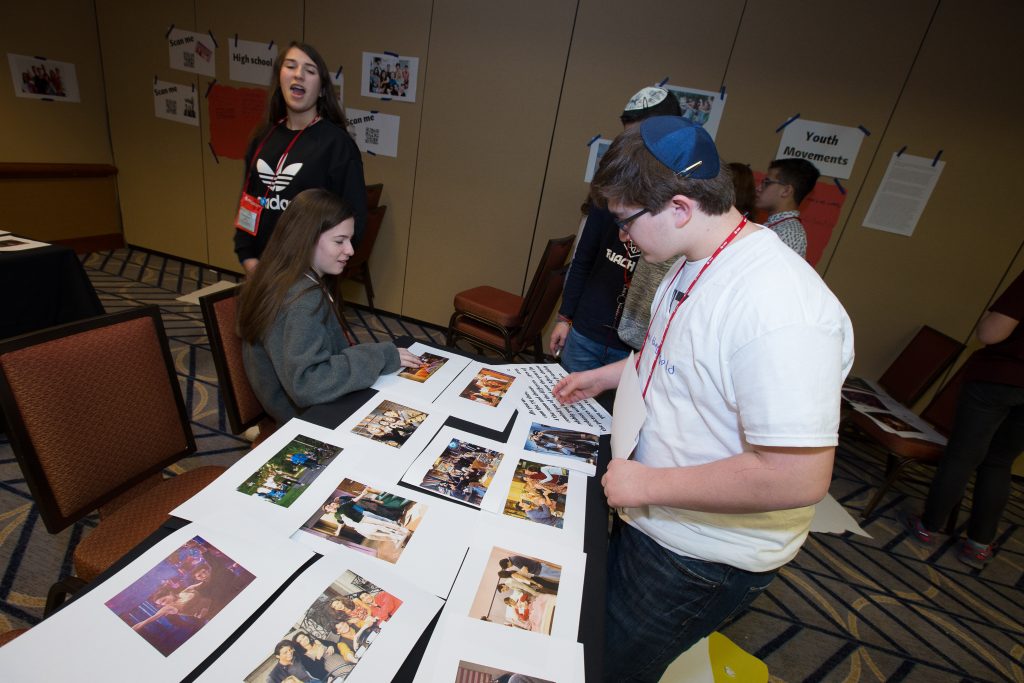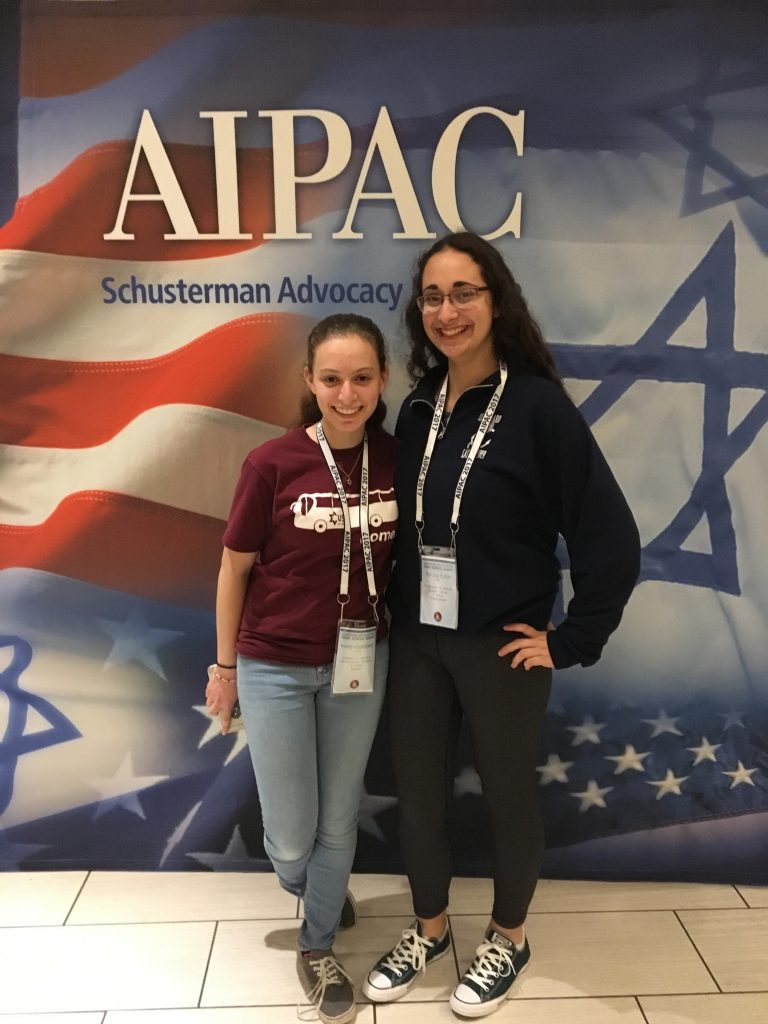By Rachel Robin, Seaboard USY
In terms of Israel, it’s hard to find something on the news that isn’t politically controversial. But so much is happening there every day that never gets reported.
Israeli scientists are making new discoveries about pancreatic cancer, new medical technologies are being developed, and the country is one of the world leaders in Artificial Intelligence technology.
However; as Americans, sometimes it’s hard to connect with a country halfway around the world when the only things we hear about it are almost always polarized.

Rachel at the AIPAC Schusterman High School Summit
At AIPAC’s Schusterman High School Advocacy Institute this past fall, I had the opportunity to learn about Israel as part of the USY delegation.
The Advocacy Institute gives Israel political activism training, teaching teen leaders about the U.S.-Israel relationship so that they can effectively advocate for Israel on school campuses.
There, I improved my advocacy skills. I, along with hundreds of other Jewish teens from different denominations and locations across the county, was informed about certain key issues including the need for an approach to Iran that addresses the underlying flaws of the Joint Comprehensive Plan of Action (JCPOA); fighting the Boycott of Israel by urging representatives to cosponsor the Israel Anti-Boycott Act; and toughening sanctions on Hizballah. We then called our congressman to lobby for their support.
At Schusterman I learned that, when talking about the big issues, it’s important to start with a basic knowledge about the cultural differences and similarities between Israel and America.
However; though I lobbied for Israel about the big issues—an eye-opening and amazing learning experience—I didn’t know anything about the little things in Israel.

But then just a few weeks ago at USY International Convention in Chicago (bringing hundreds of teens together for the largest gathering of the USY year), one of the programs I took part in was a walk-through of the typical life of an American versus an Israeli.
Though Israeli and American life started out relatively similar, by the time we got to post-secondary education the two life tracks couldn’t have been more different.

Teens learn about Israeli life at USY International Convention 2017
While the typical American was enjoying life on a college campus, the Israeli was serving in the Israeli Defense Forces.
This, naturally, was the most apparent difference, but there were other smaller things along the way.
Israelis are surrounded by numerous aspects of Judaism their entire lives, whereas sometimes in America we have to actively seek out Jewish life.

Rachel (right) poses with a friend at the AIPAC Summit
Israeli primary and secondary education is different, their communication style is different, and their main meal is lunch (not dinner like it is in the US).
Sometimes when we can’t connect to Israel it’s because we only see these differences, but instead of seeing them as things we can’t relate to, we should see them as opportunities to learn about the country.
Combining my experiences with AIPAC and at USY’s International Convention, I have discovered that if we want to connect to Israel, we should look closer at the country’s accomplishments that are being forgotten by the media.
If we want to appreciate Israel, we should look at all the little things that make the country unique. And if we want to advocate for Israel, we should know far beyond the headlines and strive to understand the everyday lives Israeli citizens.